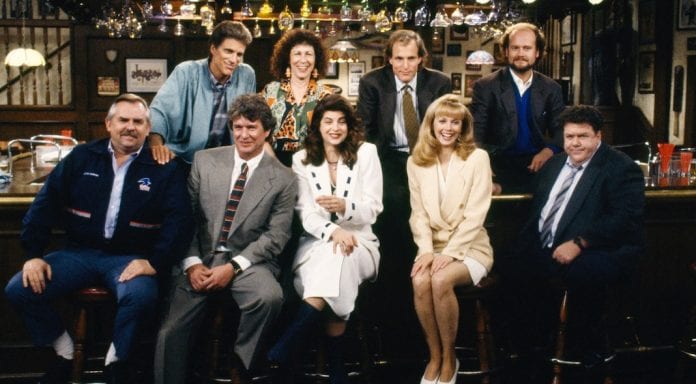You are not logged in. Would you like to login?

The character of any board is determined by the posters themselves.
This place will be as good as you participants make it.
Please read the rules and behave accordingly.
With the exception of "The Back Alley", CIVIL DISCUSSION IS EXPECTED
Any problems, you may email at cpd.monitors@gmail.com - Send private forum message - OR Ask A Question here
Any and all personal information will remain strictly confidential.
Click BOLDED FORUM TITLES to open each one.
For help navigating & posting on the forums using BBCode, Get Help Here
We are currently NOT ACCEPTING new registrations. If you want to join, post a message on the simple message board that you'd like a membership here too.
- Siagiah
- Administrator
 Offline
Offline - From: New England, U.S.A.
- Registered: 2/16/2019
- Posts: 2,804
Biden is relying too much on Obama nostalgia
Biden is relying too much on Obama nostalgia Joel Mathis
Joel Mathis
July 16, 2019
Former vice president and current Democratic presidential contender Joe Biden officially unveiled his health-care proposal on Monday, and let's just say the whole thing was rather Bidenesque — slightly gaffe-prone, and maybe a little over-reliant on Biden's association with his onetime boss, former President Barack Obama.
"If you like your health-care plan, your employer-based plan, you can keep it," Biden said while introducing the proposal to the AARP. "If you like your private insurance, you can keep it."
That comment, of course, almost directly echoed a statement Obama made repeatedly while pitching the Affordable Care Act — also known as ObamaCare — nearly a decade ago. But Obama was wrong. An estimated 4 million people saw their existing coverage canceled in late 2013 because it didn't meet the law's requirements; PolitiFact named Obama's statement its "Lie of the Year," and his disapproval ratings shot up by 15 points as ACA implementation began. Public anger nearly upended the legislation before it even got off the ground. Republicans made hay with the quote for years. In other words, Biden made his own health-care plan an easy target for the GOP. But the longer-term problem illuminated in Biden's announcement is the enduring Obama nostalgia that runs through Biden's campaign, and his potential presidency.
We already know Biden is relying on sentimentality for the Obama years as a central political strategy to winning the Democratic nomination and the presidency. Obama has made no endorsements during the primaries, but Biden is positioning himself as the former president's heir apparent. His frequent invocations of "Barack and I" have become fodder for TV comedians, rivaling Rudy Giuliani's frequent references to 9/11 during the 2008 Republican primaries.
Now that the health-care proposal has been made public, something new has emerged: "Barack and I" is more than a de facto campaign slogan — it might well be Biden's governing philosophy.
His health-care proposal eschews the "Medicare-for-all" proposals offered by the other major Democratic candidates like Sens. Bernie Sanders (I-Vt.) and Elizabeth Warren (D-Mass.) in favor of something more moderate: building on the foundation of ObamaCare. The plan's elements include adding a "public option" insurance plan to compete with private plans, expanding ACA's subsidies and tax credits to help more families pay for health insurance, and extending Medicaid coverage to residents of Republican-run states that have refused to participate in the program.
As Biden makes his pitch, it's fair to ask: Does he want to expand ACA so more Americans have easy access to health care? Or is he more motivated to protect the legacy of Obama's signature achievement as president?
"I understand the appeal of Medicare-for-all, but folks supporting it should be clear that it means getting rid of ObamaCare, and I'm not for that," Biden said in a video accompanying the announcement. "I was very proud the day I stood there with Barack Obama, and he signed that legislation."
"I find it very strange that Biden is elevating the Affordable Care Act into a good in itself rather than as a means to an end," The New York Times' Jamelle Bouie wrote on Twitter. "Now, you can make the case that preserving [and] expanding the ACA is the path to universal coverage, but he's not making that move."
To be fair, Biden has argued that it will be easier to expand ACA than to build a Medicare-for-all system from scratch. "We should be building from what we have," he said last week. But as Bouie noted, it is difficult to escape the sense that Biden also very much wants to preserve the ACA for its own sake. "The Affordable Care Act was a historic achievement for President Obama," he said in the introduction video. "And if I'm elected president, I'm going to do everything in my power to protect it and build on it."
This is one issue where Obama nostalgia may fall short with the voters Biden needs to reach. For many Democrats, ObamaCare was a good first step, establishing the idea that the federal government has an important role to play in ensuring Americans have access to adequate insurance and care. But they also considered the law flawed — too reliant on profit-seeking private insurance companies, too derivative of Republican approaches to the issue, too much the result of the political compromises it took to get passed. For such activists, ObamaCare is the clunker they drive to work; Medicare-for-all — or something like it — is the shiny, sleek sports car they want to own someday.
An appeal to the good old days may be Biden's most effective political tool in 2020 — but voters know nostalgia won't help them pay for their next emergency room visit.
 1 of 1
1 of 1